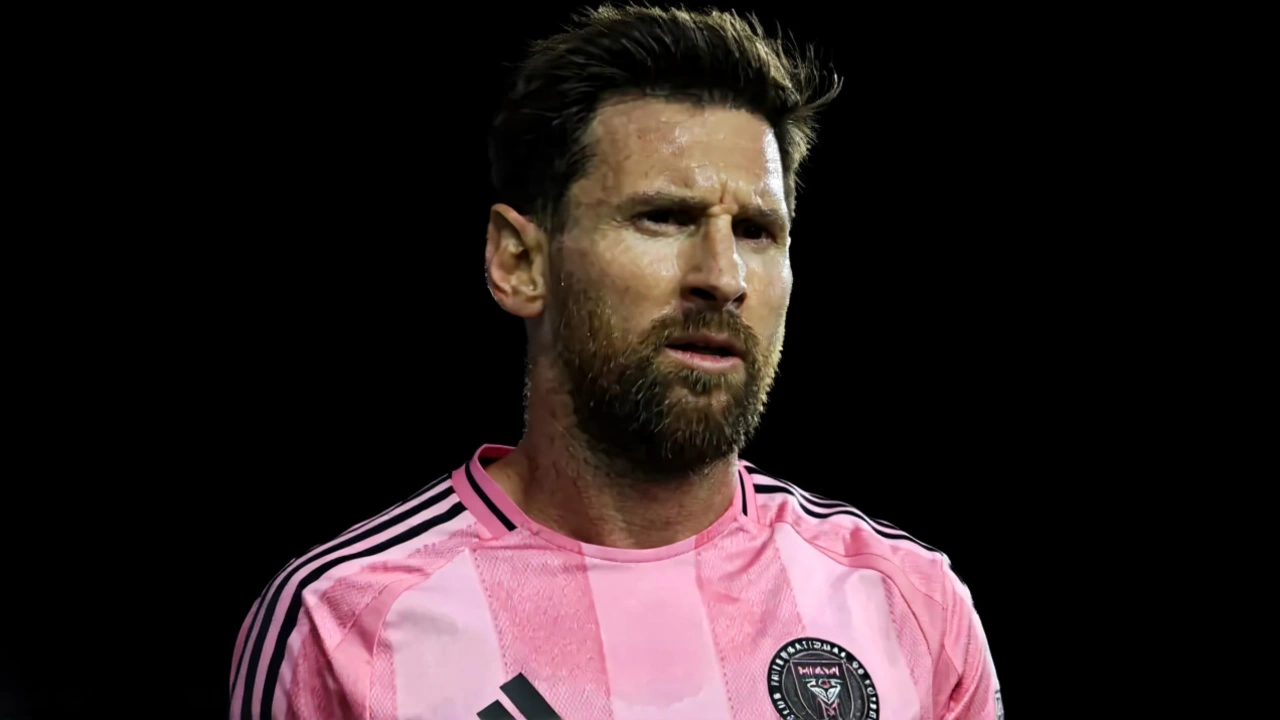On a chilly November night in Cincinnati, Lionel Messi didn’t just play soccer—he rewrote history. The 38-year-old Argentine maestro delivered a performance for the ages: one goal, three assists, and a record-shattering 12 goal contributions in just four playoff games as Inter Miami CF crushed FC Cincinnati 4-0 in the 2025 Audi MLS Cup Playoffs Eastern Conference Semifinal. The match, played at TQL Stadium on November 23, 2025, wasn’t just a win—it was a statement. Inter Miami, founded in 2018 and entering MLS in 2020, advanced to their first-ever MLS Cup Final, a milestone that had eluded them since their debut. And it all came thanks to a man who, at nearly 40, still makes the impossible look routine.
How a False Nine and a Teenager Changed Everything
Head coach Javier Alejandro Mascherano made a bold call before kickoff: bench veteran Luis Alberto Suárez and start 19-year-old Argentine midfielder Matteo Silvetti. The move raised eyebrows. Suárez had just returned from suspension. Silvetti, barely out of youth academy, had only 12 MLS appearances. But Mascherano saw something others didn’t—a chemistry between Silvetti and Messi, two Rosario natives who grew up idolizing the same legends. It paid off instantly. At the 17:30 mark, after Jordi Alba pounced on a loose ball from FC Cincinnati’s Nick Hagglund, Silvetti surged forward and delivered a perfect left-footed cross. Messi, unmarked in the box, rose like a man twice his age and headed it past goalkeeper Evan Louro. The broadcast called it: "The two Rosario boys combine again."
That wasn’t a fluke. It was a blueprint. Silvetti finished the night with one goal and two assists. He wasn’t just supporting Messi—he was unlocking him. And in a league often dominated by physicality, Inter Miami’s midfield control, orchestrated by Silvetti and anchored by the veteran Josef Martínez, turned the game into a clinic.
Record-Breaking Numbers in a Playoff Run
Messi’s stat line—12 goal contributions in four playoff games—shattered the previous MLS record by two. He did it in just 360 minutes of play. That’s one contribution every 30 minutes. For context: the average MLS player scores a goal every 1,200 minutes. Messi’s output isn’t just elite—it’s alien. His sixth goal of the 2025 postseason, the header against Cincinnati, was his 30th career headed goal and his ninth in seven games across all competitions. He’s not slowing down. He’s accelerating.
The other three goals? All set up by Messi. A diagonal pass to Evander for a curling finish. A no-look flick to Silvetti, who slotted it past the keeper. And a third, a clinical chip over the defense after a one-two with Martínez. Each play was a different kind of genius. Each one left Cincinnati’s backline stunned.
Why This Matters Beyond the Scoreline
Inter Miami’s rise isn’t just about Messi. It’s about institutional transformation. When the club joined MLS in 2020, they were a punchline—a celebrity project with little on-field credibility. Now? They’re the first team since LA Galaxy in 2014 to reach the final with a single player accounting for more than half of their playoff goals. And Messi? He’s directly involved in 10 of Inter Miami’s 12 all-time playoff goals. That’s not luck. That’s legacy-building.
Meanwhile, FC Cincinnati, who finished second in the Eastern Conference, looked out of their depth. Their high press collapsed under Inter Miami’s patient build-up. Their midfield, led by 2024 MLS Cup MVP Lucas Zelarayán, was neutralized. The defense, which had allowed just six goals in their last 10 games, surrendered four in 90 minutes. The difference? Pressure. Precision. And one man who sees the game three moves ahead.
The Road to the Final
Inter Miami will face either the Columbus Crew or New York City FC in the 2025 MLS Cup Final on December 7, 2025. The winner of that series will play in front of a sold-out crowd at DRV PNK Stadium in Fort Lauderdale—a venue that’s become a pilgrimage site for soccer fans worldwide. This isn’t just a final. It’s the culmination of a three-year project that began with Messi’s signing in July 2023. What started as a media circus is now a championship chase.
And if you’re wondering whether Messi can do this in the final? Consider this: he’s scored in his last seven games across all competitions. He’s never lost a playoff match since joining Inter Miami. And he’s now the only player in MLS history to record six goals and six assists in a single postseason.
What’s Next? The Legacy of a Legend
Messi isn’t chasing records anymore. He’s writing them in real time. This playoff run has already cemented him as the most dominant player in MLS history—even if he only plays 12 games a year. He’s not just a star. He’s a system. He elevates teammates, forces opponents to rethink tactics, and turns a fledgling franchise into a title contender.
As Mascherano said after the match: "He doesn’t need to be the best player in the world anymore. He just needs to be the only one who can do what he does."
Frequently Asked Questions
How does Messi’s 12-goal contribution record compare to other MLS playoff legends?
Messi’s 12 goal contributions (6 goals, 6 assists) in four games surpasses the previous MLS playoff record of 10, held by Landon Donovan in 2005 and Bradley Wright-Phillips in 2015. No player in MLS history has reached double digits in a single postseason since 2010. Messi did it in 360 minutes—less than half the time it took Donovan to set his record over six games.
Why was Matteo Silvetti’s inclusion so pivotal?
Silvetti’s energy and left-footed crossing ability created space for Messi to operate centrally. He wasn’t just a passer—he was a decoy, a runner, and a link between defense and attack. His two assists and goal came from overlapping runs that stretched Cincinnati’s high line, something veteran Luis Alberto Suárez rarely did. Mascherano’s gamble paid off because Silvetti understood Messi’s rhythm better than anyone on the roster.
What impact does this have on Inter Miami’s future?
A win in the MLS Cup Final would transform Inter Miami from a novelty into a powerhouse. It would validate their spending, attract elite talent, and make Fort Lauderdale a destination for global stars. Even if they lose, this playoff run proves they’re no longer a one-man team—they’re a contender built around Messi, with depth and tactical intelligence.
Is this Messi’s last shot at an MLS title?
Messi’s contract runs through 2026, with an option for 2027. At 39, he’s still performing at a level few players reach at 25. But MLS is unpredictable. If Inter Miami wins, he’ll likely extend his stay. If they lose, speculation will grow about him returning to Argentina or retiring. Either way, this is his final chance to lift the MLS Cup—and he’s playing like he knows it.
How did FC Cincinnati’s defense collapse so badly?
Cincinnati’s backline, led by center-backs Nick Hagglund and Jalen Neal, was drawn out of position by Messi’s movement and Inter Miami’s quick switches. They overcommitted to Silvetti’s runs and left gaps for Messi to exploit. When the ball moved from flank to flank faster than their recovery speed, they were left scrambling. It wasn’t just one mistake—it was a system failure against a player who sees the field like a chessboard.
What does this mean for the future of MLS?
Messi’s dominance is forcing MLS to rethink its identity. This isn’t just a star attraction—it’s a performance that elevates the entire league’s competitiveness. If a 38-year-old can carry a team to its first final with record-breaking efficiency, it proves MLS can be a legitimate destination for elite talent, not just a retirement league. The league’s global profile just got a massive boost.

